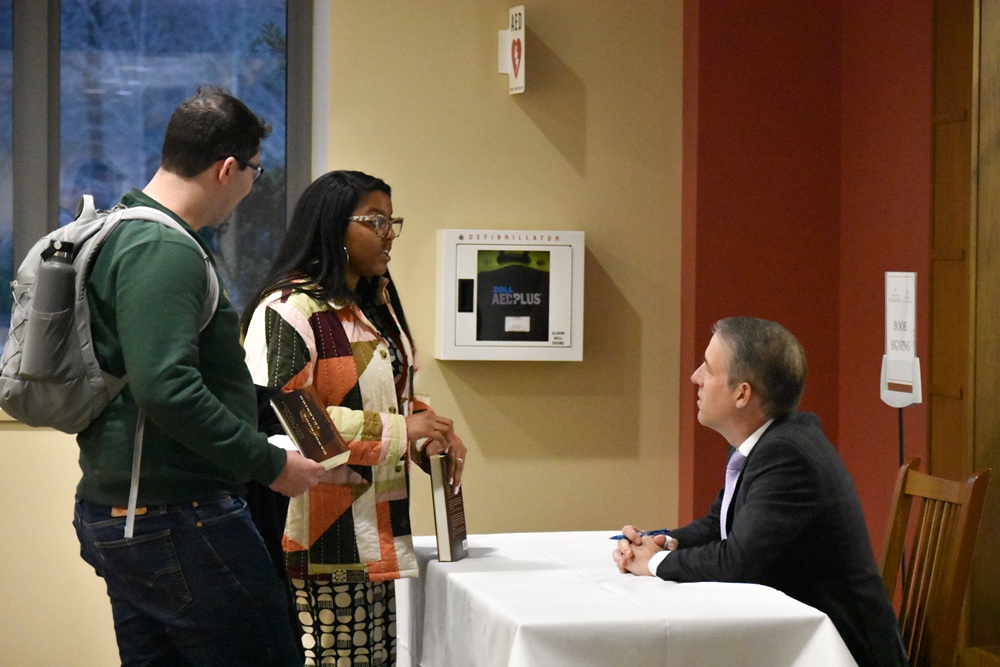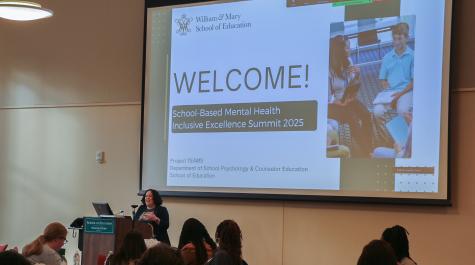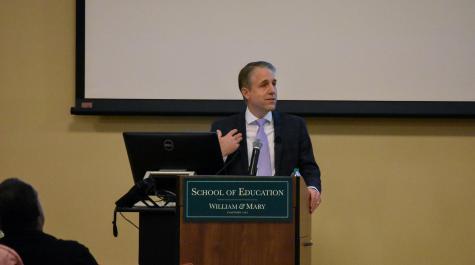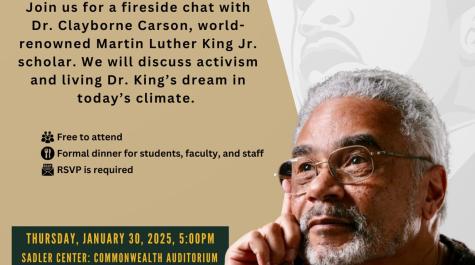Three pivotal keynotes on social justice in public schools, policy and discourse
As the university honored the life and legacy of Martin Luther King Jr., and February is Black History Month, the William & Mary (W&M) School of Education has hosted three recent events highlighting aspects of social justice in public schools, policy and discourse.
On January 27, the W&M School of Education School Psychology program hosted its fifth annual Inclusive Excellence Summit for School-Based Mental Health Providers. The summit has grown in popularity from 54 professionals in its first year to 228 this year, with attendance both in person and virtual.
Keynote Speaker Charles Barrett, author of “It’s Always About the Children, Today” and “Social Justice in Schools” discussed the importance of social justice in the lives of students, families and the communities that school-based mental health professionals serve. He described examples of what social justice can look like in schools, and how professionals can make it into a reality.
According to Barrett, social justice requires promoting nondiscriminatory practices through the empowerment of families and community stakeholders. To accomplish this, education professionals can partner with families and the community to invite them into the education process, be flexible, share decision-making power with families and get involved in the community. After the keynote, other sessions included topics such as mental health services for multilingual students, the use of AI in schools and promoting inclusive educational spaces.
The W&M School of Education co-hosted a fireside chat with Clayborne Carson, Martin Luther King, Jr. Centennial Professor Emeritus, Stanford University, on January 30. A world-renowned Martin Luther King Jr. scholar, Carson discussed historical reflections on activism and the intersection of King’s philosophy with contemporary movements for justice and equality. The chat was moderated by Public Historian for Research & Programs for The Lemon Project, Jajuan Johnson, who fielded questions about Carson’s life during the civil rights movement, his current teaching and his beliefs on King’s desire for the next generation to keep moving forward as a society.
Carson’s answers were thoughtful and thought-provoking, from discussing the first time he was arrested, to his interviews with significant political activists during the civil rights movement and his work on the Martin Luther King Papers Project. While no longer actively conducting research, he continues to uphold the public good by holding free zoom classes for all to attend. 
Last week, close to 200 people from the university and local community attended the School of Education’s Hauben Distinguished Lecture with Professor of Law Derek Black. One of the nation’s foremost experts in education law and policy, Black’s lecture centered on his most recent book, “Dangerous Learning: The South's Long War on Black Literacy” (Yale University Press, January 2025). Having seen the “connections emerging between the story of Black literacy and the current battles engulfing public education,” Black drew inspiration from his own experiences with education in writing his latest book.
During the Q&A, the audience asked questions on the role of literacy in a democratic society. Prior to the Civil War, literacy was largely suppressed, and this highlights one of the reasons why education is essential to upholding a functioning democracy. Other notable discussion points included ways America’s older generation can support younger generations in their pursuit of social justice, how the progress made for one group of marginalized people can have profound impacts on many other groups, and the importance of not giving up on our country’s public school systems.


